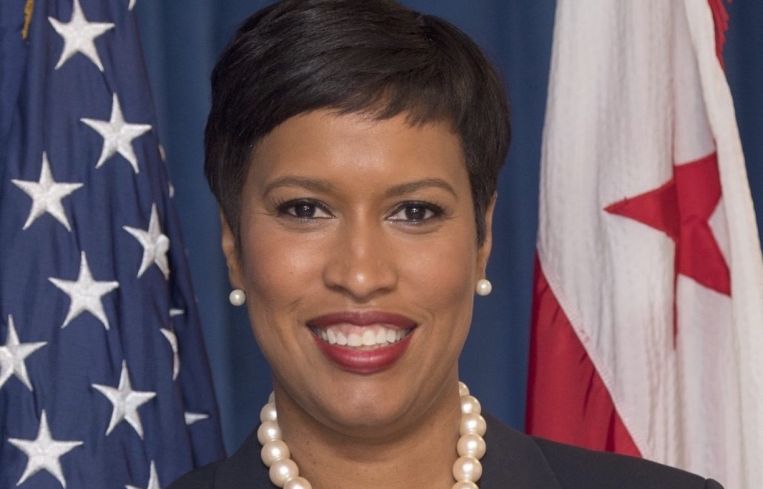DC Tosses Smaller, Affordable Housing Providers a Lifeline With $10M in Grants
By Keith Loria December 7, 2020 10:12 am
reprints
Washington, D.C., Mayor Muriel Bowser started the month of December by announcing a new $10 million investment in Housing Stabilization Grants, designed to provide support for the city’s portfolio of affordable and small multifamily owners.
“This pandemic has forced an unprecedented and disproportionate financial burden on our low-income renters, through no fault of their own,” Bowser said during her announcement last week. “By allowing housing providers to apply for assistance on behalf of tenants, we can provide swifter relief. The Housing Stabilization Grants will help us protect our affordable housing stock and keep residents in their homes.”
Federal CARES Act funding will be used for the grants, which will “cover rent arrears during the COVID-19 public health emergency, in order to assist renters and to stabilize properties that may be heading toward distress,” according to a statement from the mayor’s office.
“Housing stabilization grants couldn’t come at a more critical time,” Adrian G. Washington, CEO and founder of Neighborhood Development Company, told Commercial Observer. “D.C. residents and housing providers need this type of support. We’re appreciative of Mayor Muriel Bowser’s response to this urgent need and the impact it will have on economic stability.”
The mayor has already committed consistently to funding D.C.’s Housing Production Trust Fund (HPTF) with $100 million every year she has been in office, even this year. Still, affordable housing remains an under-met need, officials say.
“Protecting the residents living in these properties and ensuring the sustainability — physical and economic — of these communities is essential,” Christopher E. Donald, interim executive director of the D.C. Housing Finance Agency (DCHFA), told CO. “Rent delinquency may force housing providers to underinvest in the property and create communities that do not represent the commitment the city has made to working families.”
Two groups of owners will have access to the stabilization grant programs. The DCHFA will administer to multifamily owners in D.C.’s portfolio of income-restricted affordable housing projects financed by the HPTF, low-income housing tax credits, or other local and federal affordable housing funds, while the Department of Housing and Community Development (DHCD) will administer to owners with portfolios of 20 units or fewer, per the mayor’s office statement.
There are 30,000 units of housing between these two ownership groups, with occupancy of these units hovering around 85 to 88 percent.
“As this percentage decreases, there are less funds to operate the property,” Donald said. “Immediate repairs, operating staff and preventive maintenance have to be decreased over time to make the finances of the project work.”
Donald and others involved in Mayor Bowser’s latest initiative say they are working to achieve two things. They want to make sure that, when this pandemic is over, that they minimize the displacement of residents due to delinquent or unpaid rent, and they want to ensure that owners in the subsidy programs can successfully maintain the quality of the homes that their residents occupy. The grants will help fulfill this mission.
“Long term, this investment will stabilize communities,” Donald said. “This investment will continue to facilitate economically diverse neighborhoods. It will protect long-term residents from being displaced, and it will help tenants in a time of significant need.”
The Housing Stabilization Grants will be used to “cover rent arrears accrued from April 1 through Nov. 30, and will be paid by the District to housing providers in an 80:20 split, with the District contributing 80 percent of the rent, up to $2,000 in assistance, and the landlord forgiving the rest,” per the statement.
So, organizers say, tenants should be caught up on any and all back-rent with the help of the grants. Applications for the program will close Dec. 11.
“This is the latest effort of our administration to ensure that our residents have the resources they need to thrive during this pandemic,” John Falcicchio, deputy mayor for planning and economic development, said in a statement. “These housing stabilization funds will allow us to help not only tenants, but also the housing providers that have partnered with us to maintain affordable living spaces for thousands of people across our city during unprecedented times.”
According to Donald, many of the residents living in these units have been greatly impacted during the pandemic due to job losses and loss of wages.
“Through the payment of any arrearages, we reduce some of the burden on residents and housing providers,” he said. “Ultimately, this funding will help stabilize properties and ensure housing providers have the resources to continue to offer the highest quality housing available.”
The stabilization grants are just the latest effort to help those who own affordable housing units in D.C.
In November, D.C.’s Department of Housing and Community Development sought to create a new loan program for developers who are acquiring and renovating affordable properties in the D.C. region.
In her Dec. 1 announcement, Mayor Bowser announced that she will allocate an additional $4 million in CARES Act Community Development Block Grant Funds for the District’s Coronavirus Housing Assistance Program (CHAP), upping the program to $10.2 million. Applications for those funds will be available in January through the DHCD.
Update: This story originally misattributed source material. This has been corrected. We apologize for the error.



